Planning worship?
Check out our sister site, ZeteoSearch.org,
for 20+ additional resources related to your search.
- |
User Links
Person Results
Wendell P. Loveless
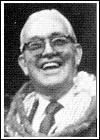
1892 - 1987 Composer of "[And we know that all things work together for good]" in Radio Songs and Choruses of the Gospel No. 1 Rv Wendell Phillips Loveless USA 1892-1987, Born in Wheaton, IL, he first engaged in business in Chicago. In 1914 he became a member of an entertainment group that toured the U.S. on the Chatauqua circuit. Spending six years with the group he learned voice, piano, dramatics, and MC duties, later managing the group. He later used these talents in Christian ministry. In 1917 he married Velma Stone, and they had three children: Robert, David, and Wendell Jr. He was a Lieutenant in the Marine Corps during WWI. He was converted through reading the Bible at home. He joined the Moody Bible Institute (MBI) in 1926, first as business manager of the extension department. He later became director of the Moody Bible Institute radio station WMBI in Chicago from 1926-1947. He then became an itinerant Bible teacher. He later pastored the Wheaton Evangelical Free Church, Community Church in Boca Raton, FL, and First Chinese Church of Christ in Honolulu, HI, continuing his radio ministry in the last two locations (also managing station KAIM Honolulu). In 1960 he assigned all his copyrights to Hope Publishing Company. He wrote popular songs and choruses, many found in hymnals published by Hope, and some translated into other languages. He authored several books: “Glimpses of Christ n Psalm IX” (1937); “Sunrise meditations” (1940); “New radio songs & choruses of the gospel #3” (1940); New radio songs & choruses of the gospel #4” (1942); “Little talks on great words” (1942?); “Christ and the believer in the Song of Songs” (1945); “Plain talks on practical truths” (1945); “New sunrise meditations” (1945); “Manual of gospel broadcasting” (1946); “Plain talks on Romans” (1946); “New radio songs & choruses of the gospel #5” (1946). He died in Honolulu, HI. He was an author, compiler, performer, editor, narrator, composer, actor, and writer.
John Perry
Wendell P. Loveless
William Knapp

1698 - 1768 Person Name: Knapp Composer of "ALL SAINTS" in New Manual of Praise Born: 1698, Wareham, Dorsetshire, England.
Died: September 26, 1768, Poole, Dorsetshire, England.
Buried: Poole, Dorsetshire, England.
William Knapp
Erik Routley
1917 - 1982 Author of "God speaks and all things come to be" in Hymns and Psalms
Erik Routley
William E. Booth-Clibborn
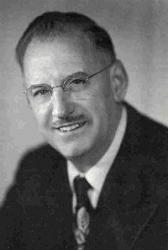
1893 - 1969 Author of "One thing is needful" William E. Booth-Clibborn was born on August 4, 1893 in Switzerland. He was the son of Arthur and Catherine Booth-Clibborn, and became the best known of the Booth-Clibborn children, having a worldwide ministry of evangelism and writing. He accepted the Oneness doctrine and was baptized in Jesus' name. Meetings he conducted in Australia during the early 1930s helped found several Pentecostal churches. He later founded Immanuel Temple in Portland, Oregon, where he died in 1969.
From www.apostolicarchives.com
William E. Booth-Clibborn
Colin Gibson
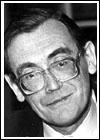
b. 1933 Composer of "BURNSIDE" in Hope is our Song Colin Gibson (b. 1933) was born in Dunedin, the south island of New Zealand. He has been writing hymn texts and hymn settings for over 20 years. His works have been published and performed in Africa, the United States, Asia and Australasia, Great Britain and Europe. He is organist and director of the Mornington Methodist Choir, Dunedin, New Zealand, a lay preacher, and retired in 1999 as Head of the Department and Donald Collie Professor of English at the University of Otago where he currently heads the Department of Theatre Studies and continues to lecture on English Literature as Emeritus Professor. He has conducted numerous hymn workshops in New Zealand, Australia and Great Britain, and has been co-editor of a number of hymn collections. His frequent collaboration with Shirley Erena Murray is represented in several Hope publications, and he has his own published collections of hymns: Singing Love (Collins) and more recently Reading the Signature (Hope, 1994 - Code #1753) and Songs for a Rainbow People (Hope, 1998 - Code #8005). Three of his hymns are included in the Hope hymnal Worship & Rejoice (2001).
--www.hopepublishing.com
Colin Gibson
Adelaide Anne Procter

1825 - 1864 Person Name: Adelaide A. Procter Author of "Love divine, through all things" Not to be confused with Adelaide A. Pollard.
Adelaide Anne Proctor was born in London, in 1825. Her father, Brian W. Proctor, is well known by his literary nom de guerre of Barry Cornwall. In 1853, Miss Proctor became a contributor to Dickens' "Household Words." Her reputation as a poet was secured by the publication of her first volume of "Legends and Lyrics," in 1858. A second volume was added in 1860. She also published other compositions in poetry and prose. She died in 1864. She was a member of the Roman Catholic Church.
--Annotations of the Hymnal, Charles Hutchins, M.A. 1872.
===============
Procter, Adelaide Anne, daughter of Bryan Waller Procter (Barry Cornwall), was born in Bedford Square, London, Oct. 30, 1825. In 1851 she entered the Roman communion, and died in London, Feb. 2, 1864. Miss Procter displayed more than usual intellectual powers at an early age. In later years she was skilled in music and languages. Her poetical gifts have been widely appreciated. Her Legends and Lyrics, A Book of Verse, was published in 1858. Of this an enlarged edition was published in 1862. Her hymns in common use from these two editions are:—
1. I do not ask, 0 Lord, that life may be. Resignation. In her Legends, &c., 1862. It is one of the most widely used of Miss Procter's hymns.
2. I thank Thee, 0 my God, Who made. Thankfulness. In her Legends, &c., 1858, p. 207, in 6 stanzas of 6 lines. In several collections, including the Hymnal Companion, it begins in an altered form, "My God, I thank Thee, Who hast made;" and in others, "Our God, we thank Thee, Who hast made." Bishop Bickersteth in his note on this hymn in the Hymnal Companion, 1816, says, "This most beautiful hymn by A. A. Procter (1858), touches the chord of thankfulness in trial, as perhaps no other hymn does, and is thus most useful for the visitation of the sick."
3. One by one the sands are going [flowing]. The links of Life. In her Legends, &c., 1858, p. 20, in 8 stanzas of 4 lines.
4. Rise, for the day is passing. Redeem the Time. In her Legends, &c., 1858. Sometimes given as "Arise, for the day is passing," as in Holy Song, 1869.
5. Strive; yet I do not promise. Strive, Wait, Pray. In her Legends, &c., 1858, p. 103, in 3 stanzas of 8 lines.
6. The way is long and dreary. Life a Pilgrimage. In her Legends, &c., 1858, p. 136, in 3 stanzas of 8 lines and a refrain.
7. The shadows of the evening hours. Evening. In her Legends, &c., 1862.
8. We ask for peace, 0 Lord. Peace with God. In her Legends, &c., 1858, p. 214, in 4 stanzas of 9 lines.
--John Julian, Dictionary of Hymnology (1907)
Adelaide Anne Procter
Franz Xaver Gruber
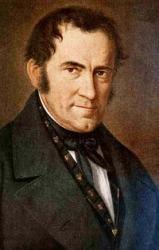
1787 - 1863 Person Name: Franz Grüber Composer of "STILLE NACHT" in The Beacon Song and Service book Franz Xaver Gruber (1787-1863) was born into a linen weaver's family and studied violin and organ even though his father wanted him to work in the family business. In addition to serving as parish organist for St. Nicholas Church in Obendorf, he taught school in nearby Arnsdorf (1807-1829) and Berndorf (1829-1833). He spent the balance of his career as organist and choir director in Hallein, where he founded the famous Hallein Choral Society.
Bert Polman
Franz Xaver Gruber
George Kingsley
1811 - 1884 Person Name: Geo. Kingsley Composer of "WARE" in Christ in Song Born: July 7, 1811, Northampton, Massachusetts.
Died: March 14, 1884, Northampton, Massachusetts.
Kingsley played the organ at the Old South Church and Hollis Street Church in Boston, Massachusetts. He also taught music at Girard College in Philadelphia, Pennsylvania, served as music supervisor for public schools in Philadelphia, and compiled a number of music books, including:
Sunday School Singing Book, 1832
The Harmonist, 1833
The Social Choir, 1836
The Sacred Choir, 1838
The Harp of David, 1844
The Young Ladies’ Harp, 1847
Templi Carmina (Northampton, Massachusetts: 1853)
The Juvenile Choir, 1865
--www.hymntime.com/tch
George Kingsley
Paul Rader
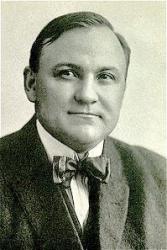
1879 - 1938 Person Name: P. R. Author of "The Sun Will Shine!" in Tabernacle Hymns Rader was one of the most powerful evangelistic preachers of the early 20th Century. He described himself as an ex-bellboy, ex-cowboy, ex-prospector, ex-football player, and ex-pugilist.
He was pastor of Moody Church in Chicago, Illinois (1915–21), and followed founder Albert Simpson as president of the Christian and Missionary Alliance (1920–23). He also founded the Chicago Gospel Tabernacle in 1922 and pastored it for 11 years.
Rader wrote many Gospel song lyrics and a few tunes, and was instrumental in founding of the Tabernacle Publishing Company.
Rader was a pioneer of Christian broadcasting, as well: In the early 1920’s, the beginning days of radio, station WBBM in Chicago, Illinois, closed every Sunday. Rader received permission to use the studios, and for several years ran a 14-hour Christian program every Sunday. Rader called his station within a station WJBT (Where Jesus Blesses Thousands).
--© Cyber Hymnal™ (www.hymntime.com/tch)
Paul Rader
Henry Baker
1835 - 1910 Composer of "QUEBEC (Hesperus)" in The Hymnal of the Evangelical Mission Covenant Church of America Henry Baker, Mus. Bac., son of the Rev. James Baker, Chancellor of the diocese of Durham; born at Nuneham, Oxfordshire; educated at Winchester School; graduated Bachelor in Music at the University of Oxford in 1867. He also worked as a civil engineer.
Scottish Church Music, its composers and sources by James Love; William Blackwwod and Sons, Edinburgh and London, 1891
Henry Baker


 My Starred Hymns
My Starred Hymns


